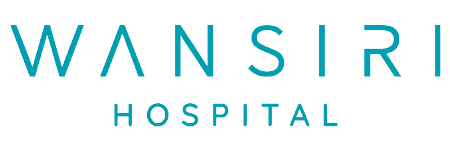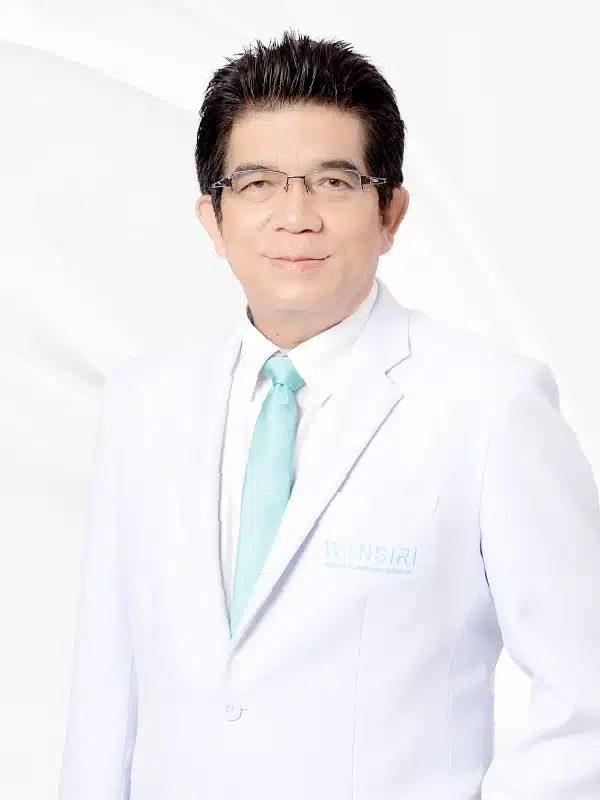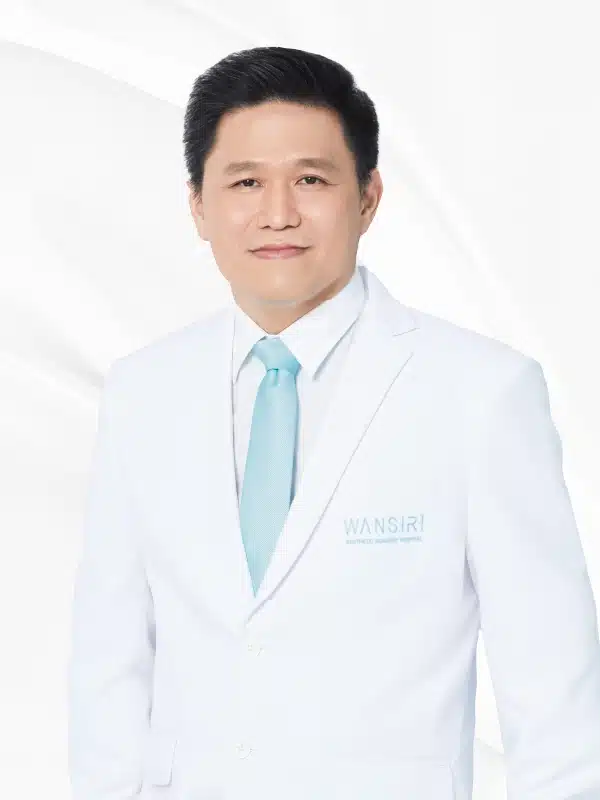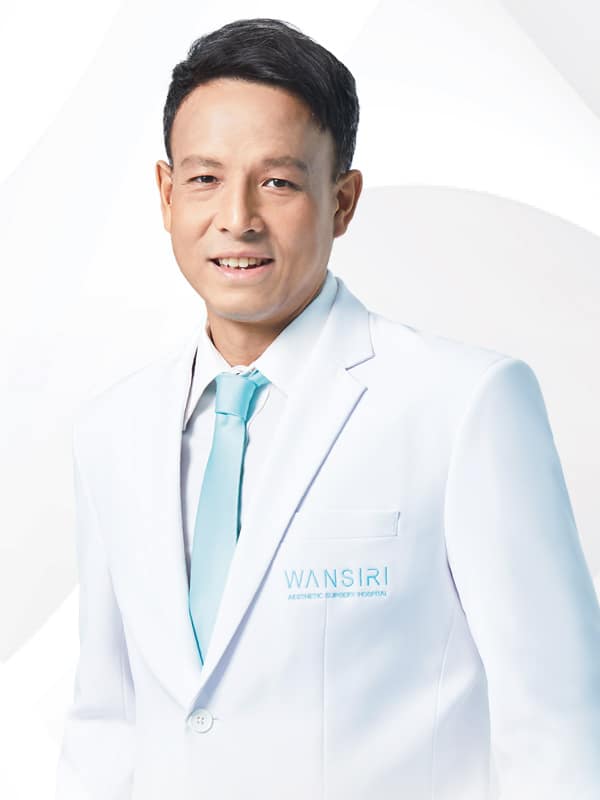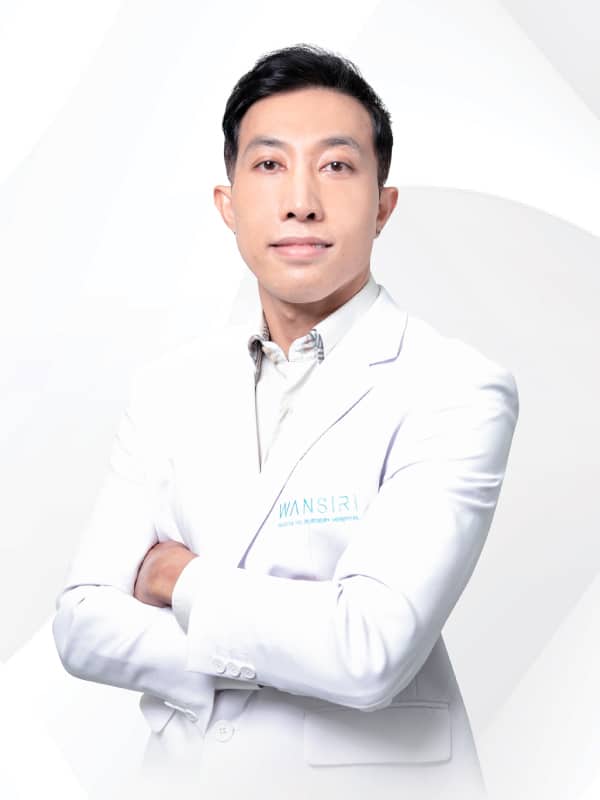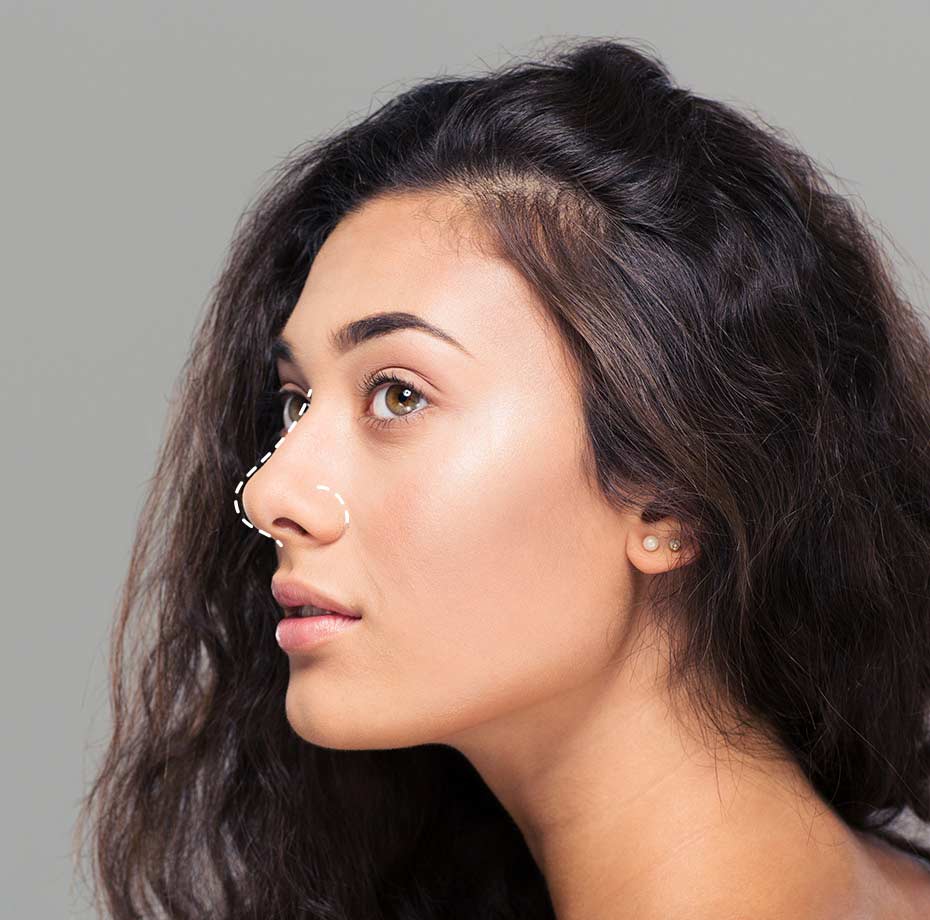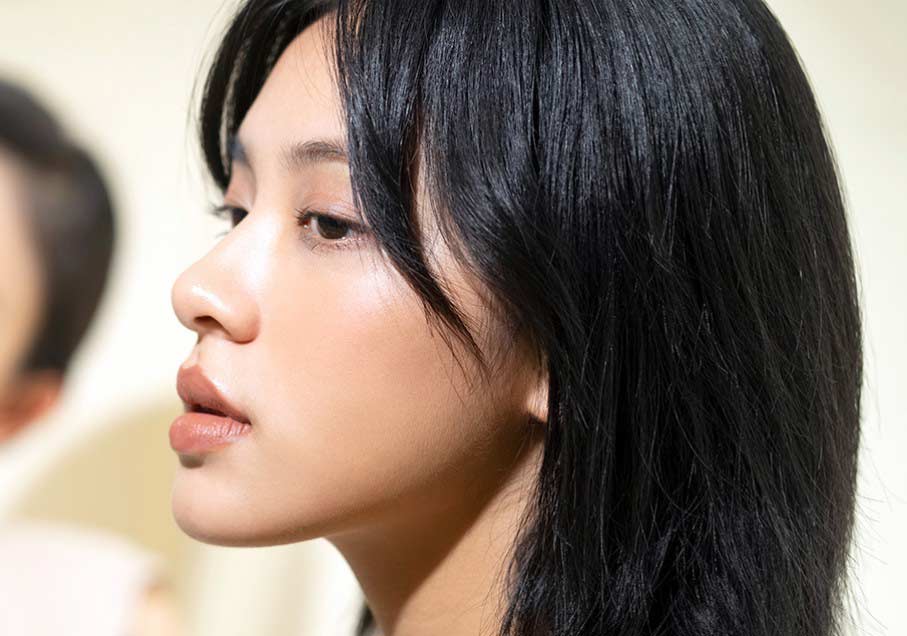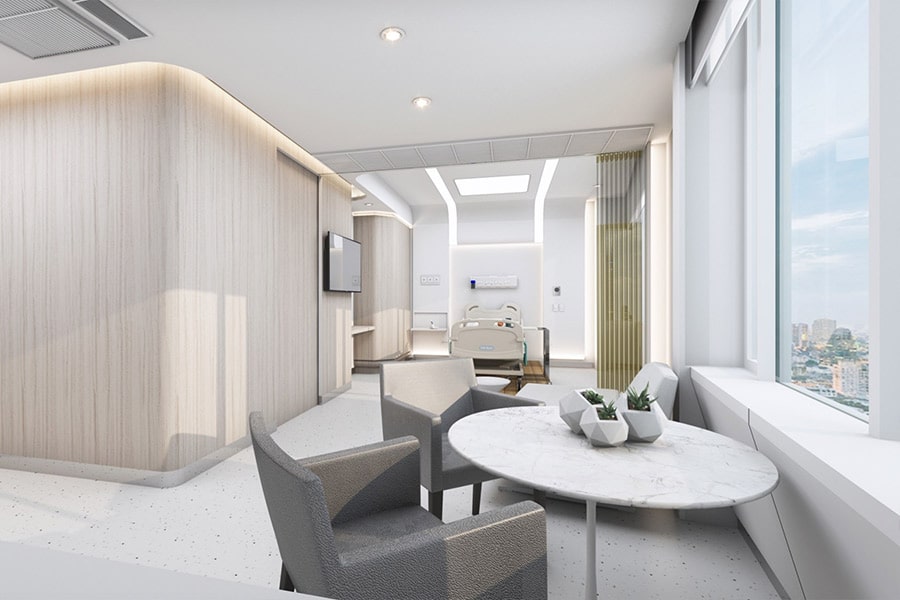
“Beautiful nose can build your confident, say goodbye to all structural problems of the nose.”
Open Rhinoplasty
Rhinoplasty is performed using one of two techniques: open or closed.
An open rhinoplasty is a solution for patients who are dissatisfied with the original shape of their nose, such as a short nose, huge nose, crooked nose, pig nose, snub nose, collapsed nasal septum, or who have had rhinoplasty and are dissatisfied with the results.
By doing an open rhinoplasty, the surgeon is able to examine the structure of the nostrils and proceed to treat the problem.
To get the desired form, the surgeon creates a vertical incision under the base of the nose to reveal the structure underneath and fix the original shape that has difficulties, such as bone, cartilage, and the tip of the nose. When the restructuring is complete, the incision will be sutured closed, and your nose will be splinted.
Who is Open Rhinoplasty Suitable For?
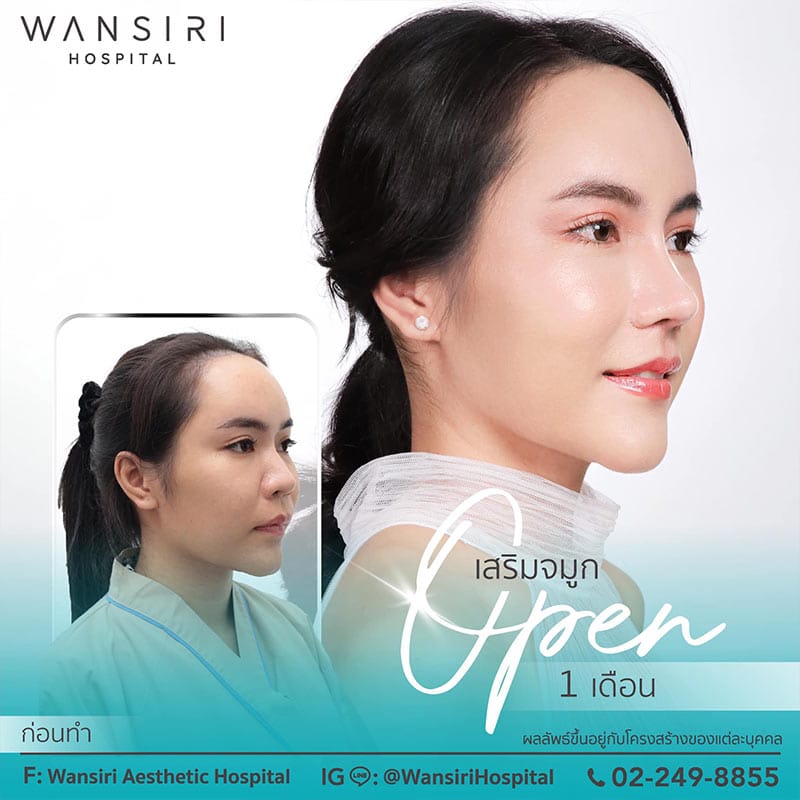
Open Rhinoplasty at Wansiri Hospital
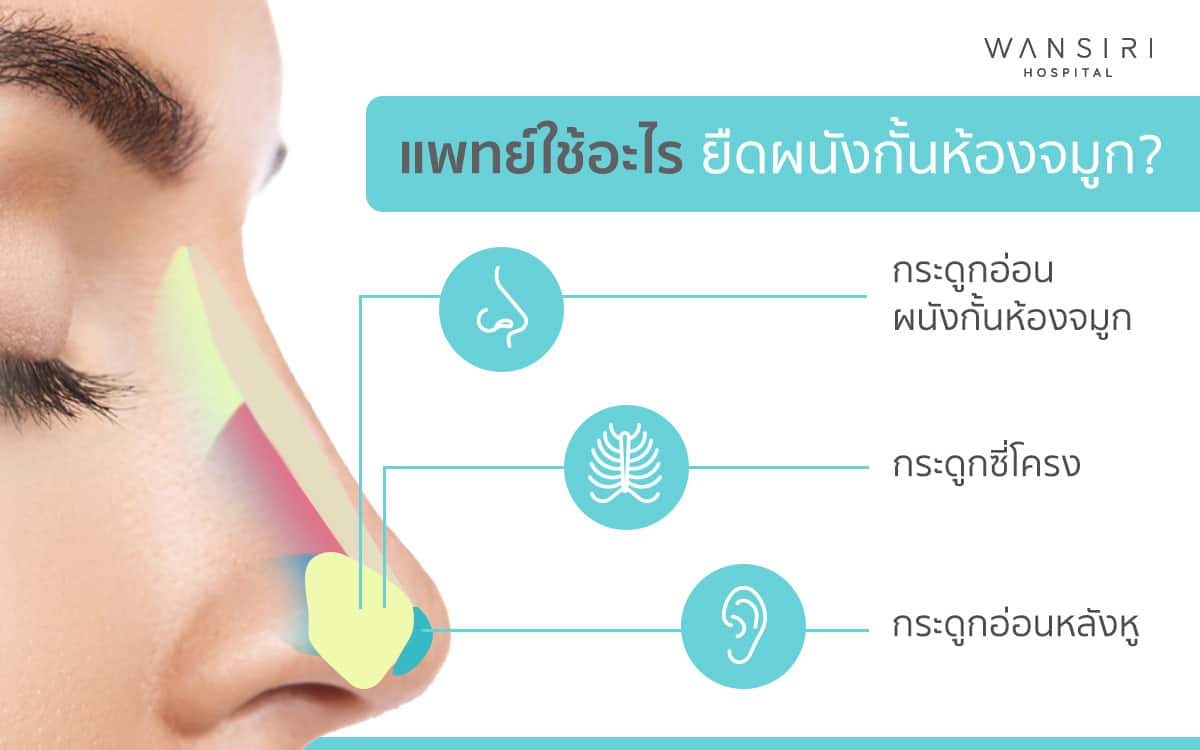
Technique #1: Septum Stretching
Stretching the nasal septum is appropriate for patients with a short nose tip, a thick nose tip, or hard membranes. The surgeon will remove a portion of the nasal septum to extend the tip of the nose, allowing the nose shape to be adjusted.
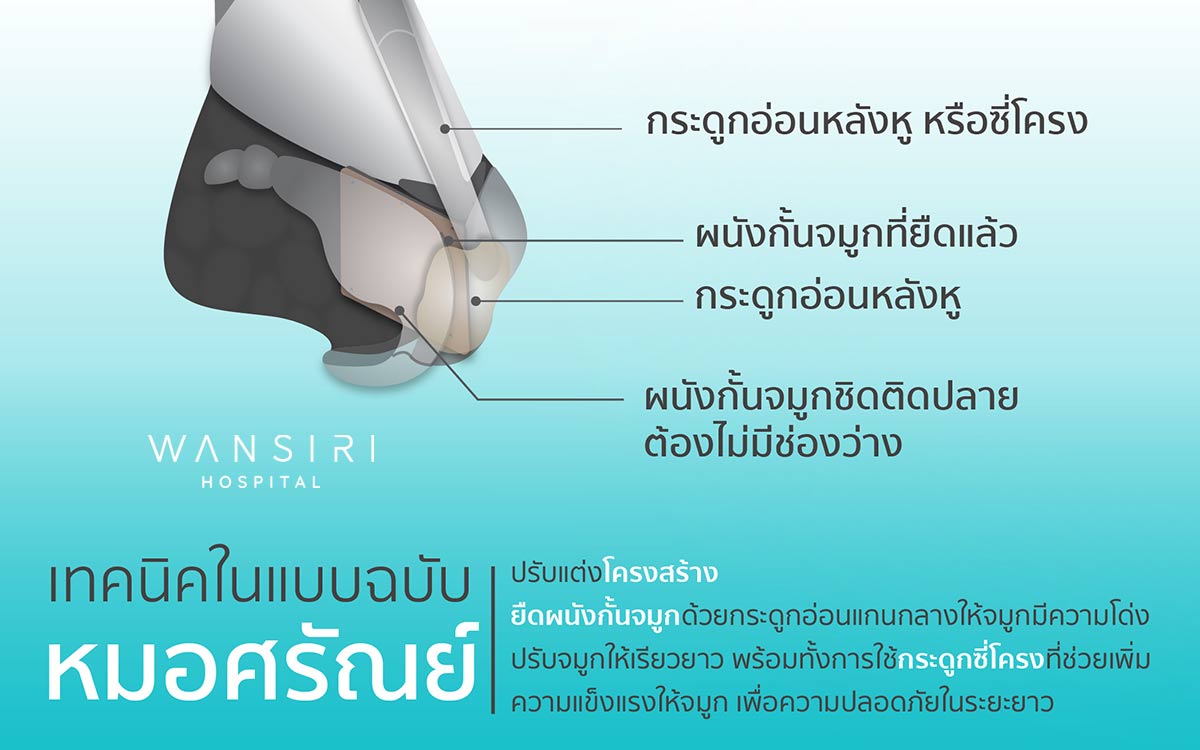
Technique #2: Deviated Septum Treatment
The surgeon will remove some cartilage from the septum and then stitch and shape it to make it straighter.
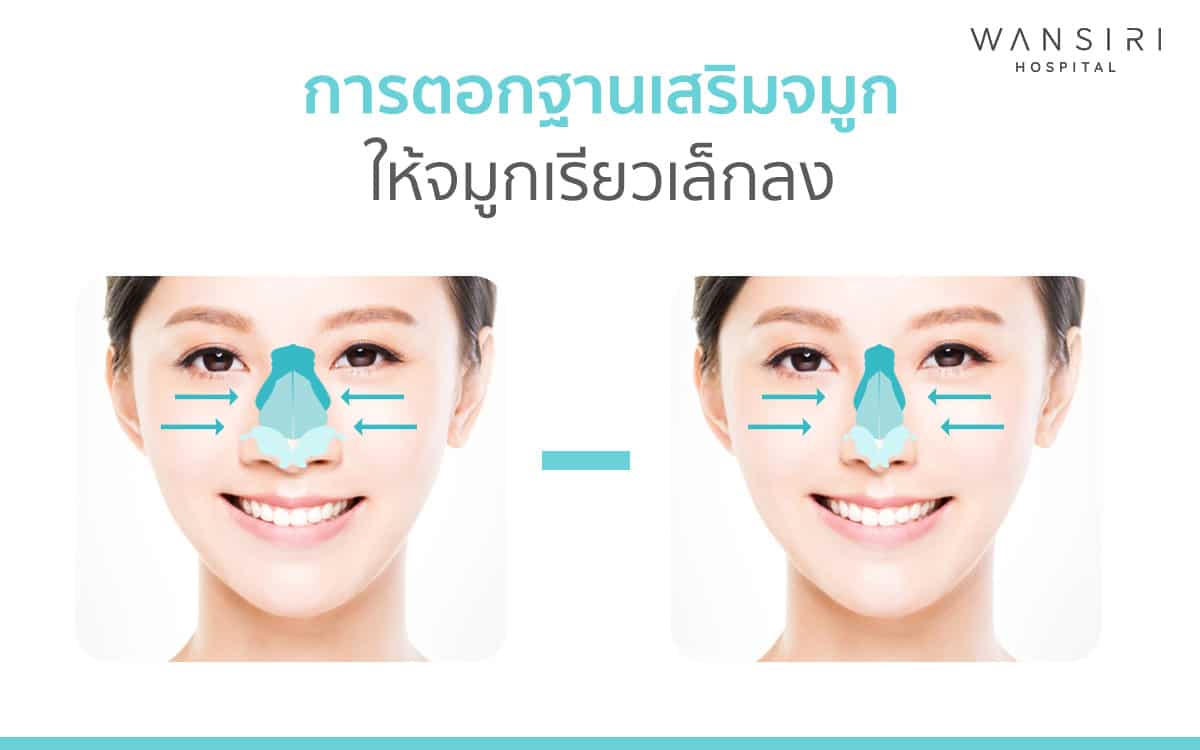
Technique #3: Osteotomy
The surgeon will employ medicinal materials to reshape your bones in patients with a huge nose, a crooked nose, or a wide nose base.
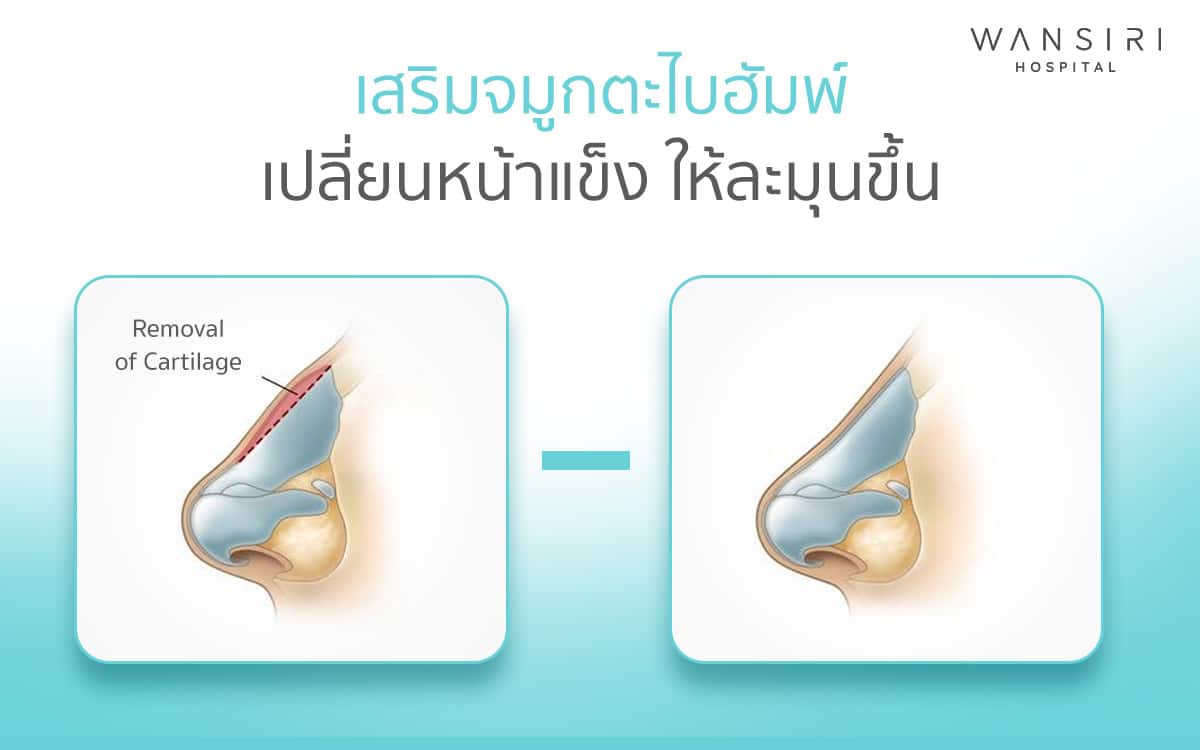
Technique #4: Hump Reduction
The surgeon will use advanced instruments to grind the bone or lower your hump, resulting in a more appealing nose shape that complements your face.
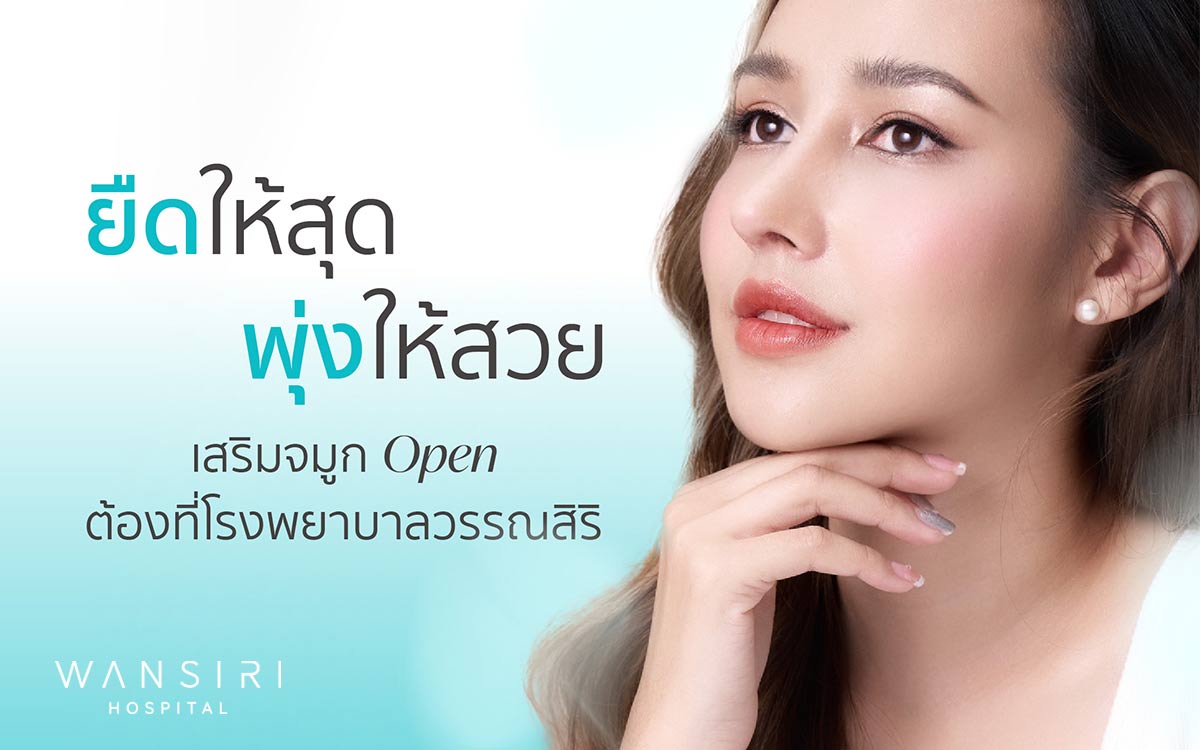
Technique #5: Interdomal Suture
The interdomal suture is the stitching of the two tips of the front wing cartilage to make the nose smaller in order to improve the dimension of the nose tip.
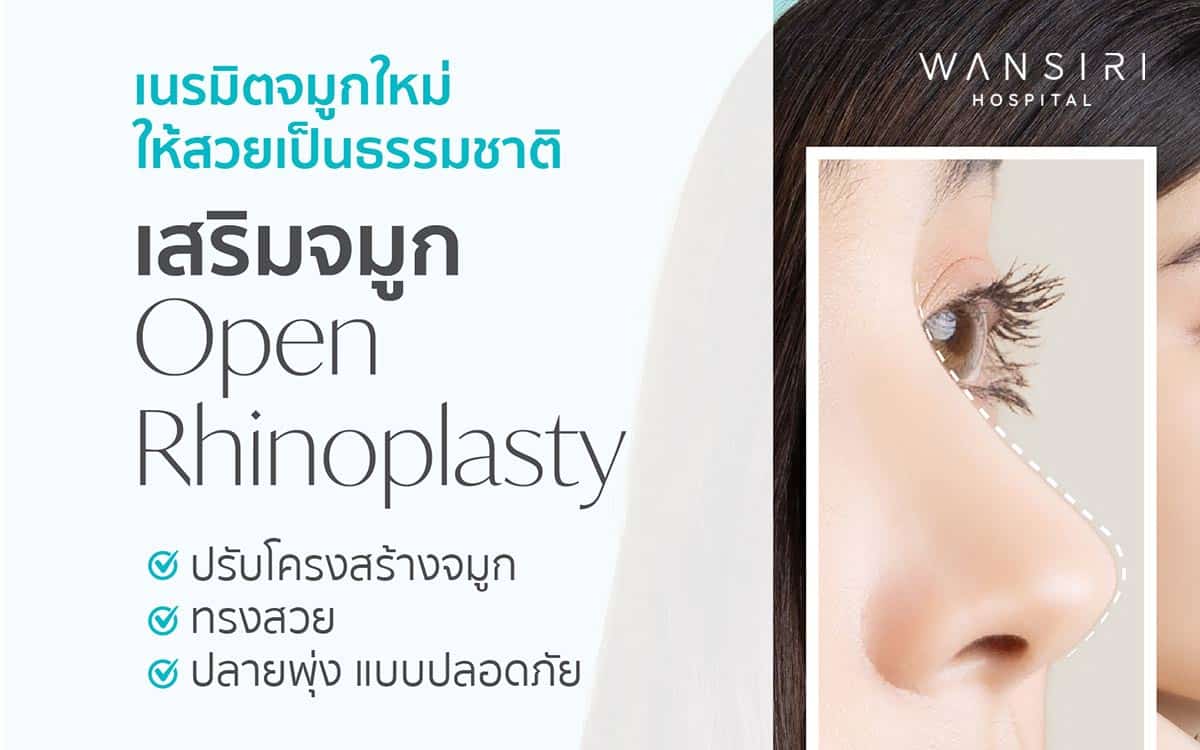
Technique #6: Tip Refinement
Patients with a thick nose tip, a snub nose, and a lot of fat at the tip must also have the nose tip reduction treatment performed by the surgeon, removing the excess fat surrounding the tip of the nose. The nose wings may be thinner.
Materials Available For Open Rhinoplasty
Reshaping the structure of your nose to make it more appealing and prominent, as well as reshaping the tip to be perfectly refined without the risk of long-term perforation. Alloplastic materials and autografts are common materials for open rhinoplasty. Before performing rhinoplasty, the surgeon will analyze and advise on the best material for the patient’s nose shape.
Alloplastic Materials
- Silicone Ready-made silicone will be reshaped by our surgeon to fit your features.
- Acellular Dermal Matrix (ADM)
Acellular dermal matrix is a soft, sponge-like material that crisscrosses like human skin’s structure, enabling nerve cells, blood vessels, and collagen to proliferate, preventing perforation and lengthening the tip.
Autografts
- Conchal cartilage of the ear is employed. It is used in nasal tip surgery to modify the nasal tip’s position, shape, and protrusion. It also prevents perforation.
- Septal cartilage is the cartilage wall that separates the nose into two nostrils. It is utilized to lengthen your nose and refine your short nose, which has a small amount of tissue. Your nose tip will be reshaped into an attractive teardrop shape.
- Rib cartilage is stronger than any other cartilage. It is used to reshape the tip of your nose or in rhinoplasty without the use of silicone.
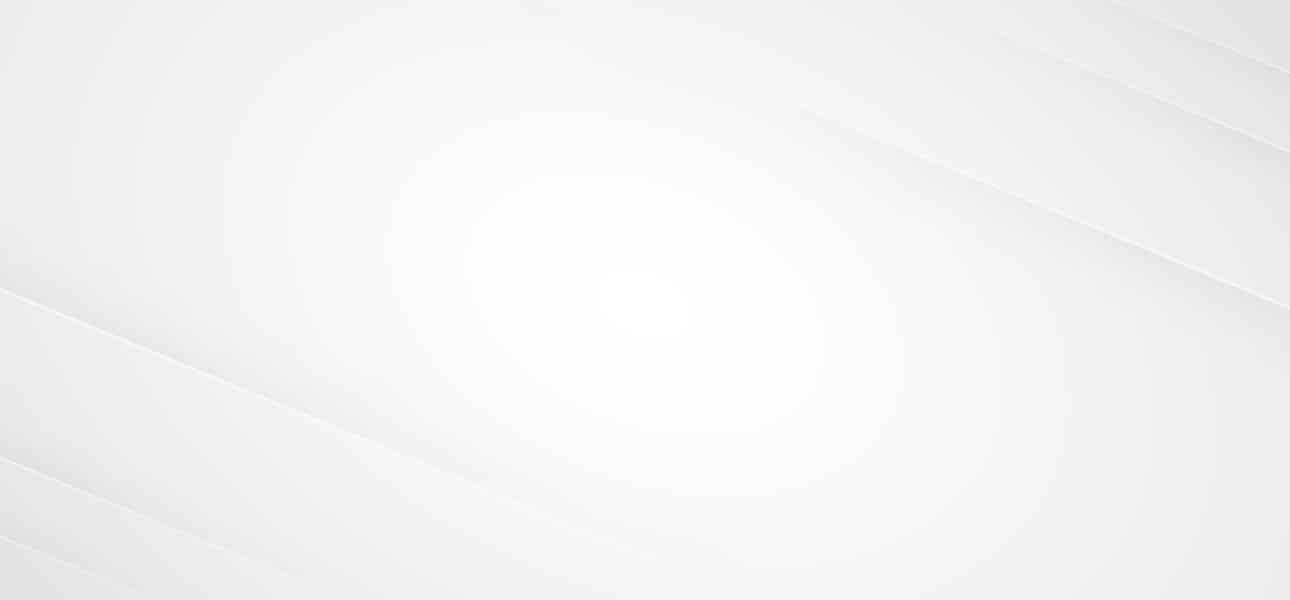
If you are experiencing these problems :
A crooked nasal structure and a hump on the nose.
Wide nose with a large nasal base, not in proportion.
Short nose, wanting to elongate the tip but afraid of going through surgery.
A Closed Rhinoplasty is the procedure for you, right here, at Wansiri Hospital
Why Wansiri Hospital?
At Wansiri Hospital, our surgeon specialists are experts in rhinoplasty, both surgery and revision, so you can get the nose shape that suits your face well. Additionally, the infections are reduced due to our standardized operating rooms, and every approach is performed by surgeon specialists. Our surgeon specialists are divided into 2 teams: anesthesiologists and surgeons.
01
We have a team of devoted and attentive plastic surgeons that have years of experience
02
We have modern operating rooms, fitted with state-of-the-art medical equipment approved by international standards
03
We have technology that allows you to see your final results before undergoing any procedures
04
We have medical anesthesiologists/anesthetists that allow you to have a restful, pain-free procedure
05
We have casts fit for every nose to support its shape and lessen close contact with any impacting force
06
We are proud to present premium service standards to achieve the highest level of satisfaction
PROCEDURE
Operation Duration
3-4 Hours.
Medication
Anesthetic.
Overnight Stay
1 Night.
Recovery Period
1 week after the operation.
Swelling
3-5 days after the operation.
The swelling
The swelling will be gone in 2 weeks. The nose shape will get back to normal within 3-6 months.
Follow-up Period
1 week (stitch removal)/ 1 month/ 3 months
Pre-Surgery Preparation
Postoperative Care
FAQS
Am I able to simultaneously undergo an Open Rhinoplasty along with an Alarplasty?
Yes, the patient is able to simultaneously undergo an Open Rhinoplasty along with an Alarplasty
What kind of cartilage is best to use as an implant?
It depends on the kind of nose shape and structure that the patient desires.
In the case that I am unhappy with the results and want to make adjustments, am I able to still use the same cartilage implant?
This depends on the state of the cartilage and whether it is in a condition that is suitable to reuse.
Am I still able to undergo an Open Rhinoplasty if I have previously gotten nose fillers?
Yes, but the filler may need to be dissolved or scraped off 2 weeks before undergoing the procedure.
If I have pre-existing conditions, such as allergies that make me itch my nose often when the weather changes rapidly or when there are a lot of dust particles, will they affect my nose?
Yes, they will. We recommend that the patient heals from their conditions before undergoing a rhinoplasty.
Am I able to sleep on my side post-surgery?
The patient should not sleep on their side for the first 3 days after undergoing surgery as it may distort and change the shape of the nose.
Am I able to wear glasses after undergoing a Closed Rhinoplasty?
The patient should avoid wearing glasses for 6 months post-surgery and should wear contact lenses instead during that period.
Am I able to play in the water or go swimming after undergoing a Closed Rhinoplasty?
Yes, but the patient should wait until the incision scar has healed after the removal of stitches.
